TRAFFIC - Live at Santa Monica (1972)
DVD5 | MPEG2 Video 720x480 (4:3) 29.97fps 8000Kbps | Dolby AC3 48000Hz 6ch 192Kbps | 01:03:18 | 2.57Gb
Genre: progressive rock, psychedelic rock, folk rock, jazz fusion
®1972 Universal Music; ©2008 Pearson Production Ltd.,
Cat.#PPCR019
Out of the past an inSpired night of music and magic. "TRAFFIC - Live at Santa Monica"... one of their rare taped performances
A band that left an incredible mark on seventies Rock and Roll , Traffic is now captured on this memorable video concert that is sure to be a collectors item. Featuring 64 minutes of non-stop rock, with timeless hits such as 'John Barleycorn', 'Rainmaker', 'The low Spark of High-Heeled Boys' and 'Freedom Rider', the concert is especially noted for the extraordinary performance of Steve Winwood. With two smash singles and a dynamic L.P., Winwood made a fantastic comeback and returned to superstardom in 1986.
Traffic were an English rock band whose members came from the West Midlands. The group formed in April 1967 by Steve Winwood, Jim Capaldi, Chris Wood and Dave Mason.[1] They began as a psychedelic rock group influenced by The Beatles when releasing early pop singles[citation needed], and diversified their sound through the use of instruments such as keyboards, like the Mellotron, reed instruments, and by incorporating jazz and improvisational techniques in their music. Their first three singles were "Paper Sun", "Hole in My Shoe", and "Here We Go Round the Mulberry Bush".
After disbanding in 1969, during which time Winwood joined Blind Faith, Traffic reunited in 1970 to release the critically acclaimed album John Barleycorn Must Die. The band's line-up varied from this point until they disbanded again in 1975, although a partial reunion, with Winwood and Capaldi, took place in 1994.
History
Traffic's singer, occasional guitarist and keyboardist Steve Winwood had success as a musician prior to joining Traffic, becoming the frontman of the Spencer Davis Group at age 15 in 1963. The Spencer Davis Group released four Top Ten singles and three Top Ten albums in the United Kingdom, as well as two Top Ten singles in the United States.
Winwood met drummer Jim Capaldi, guitarist Dave Mason, and multi-instrumentalist Chris Wood when they jammed together at The Elbow Room, a club in Aston, Birmingham. After Winwood left the Spencer Davis Group in April 1967, the quartet formed Traffic. Soon thereafter, they rented a cottage near the rural village of Aston Tirrold, Berkshire to write and rehearse new music.
Traffic signed to Chris Blackwell's Island Records label (where Winwood's elder brother Muff later became an executive), and their debut single "Paper Sun" became a UK hit in mid-1967. Their second single, Mason's psych-pop classic "Hole in My Shoe", was an even bigger hit, and it became one of their best-known tracks, but it set the stage for increasing friction between Winwood and Mason, the group's principal songwriters. The band's third single, "Here We Go Round the Mulberry Bush", was made for the soundtrack of the 1967 British feature film of the same name. Their debut album was Mr. Fantasy, produced by Jimmy Miller, and like the singles, was a hit in the UK but not as big in the US or elsewhere, although it did reach #88 and stayed on the charts for 22 weeks in the US.
Mason quit the group after the release of Mr Fantasy but rejoined for their second album, Traffic, released in 1968, which included the original version of Mason's "Feelin' Alright", which was later covered with great success by Joe Cocker. The band began touring the US in late 1968, which led to the following year's release of Traffic's next album, Last Exit, one side of which was recorded live. In 1968 Winwood, Wood and Mason also contributed to the sessions for the watershed Jimi Hendrix double-album Electric Ladyland, and Mason played acoustic guitar on Hendrix's landmark cover of Dylan's "All Along the Watchtower".
Winwood, Wood, and Capaldi quarrelled with Mason, who eventually left the group. The remaining three members wanted to take the group in a different direction, opting for a folk/blues style rather than their earlier psychedelic/eclectic rock sound, but they split again before making any more recordings or tours.
Winwood then formed the highly touted supergroup Blind Faith with Eric Clapton and Ginger Baker of Cream and bassist Ric Grech from Family, but it lasted less than a year, recording one album and undertaking one US tour. The remaining members of Traffic began a project with Mick Weaver, the short-lived Mason, Capaldi, Wood, and Frog, which played a few live dates and recorded some BBC sessions, but broke up before releasing any formal recordings.
After the break-up of Blind Faith in 1969, Winwood began working on a solo recording, bringing in Wood and Capaldi to contribute, and the project eventually turned into a new Traffic album (without Mason), John Barleycorn Must Die, their most successful album yet. Traffic went on to expand its lineup in 1971, adding Ric Grech on bass, drummer Jim Gordon of Derek and the Dominos, and percussionist Rebop Kwaku Baah. The live album Welcome to the Canteen was released in September and marked the band's break with United Artists Records. It did not bear the "Traffic" name on the cover, but instead was credited to the band's individual members including Mason, who returned for his third and final spell with the band. Mason played two songs from his recent solo album, Alone Together, and the album ended with a cover of the Spencer Davis Group song "Gimme Some Loving".
Following the departure of Mason, Traffic released The Low Spark of High Heeled Boys (Nov. 1971), which was a Top 10 American album but did not chart in the UK; the LP is also notable for its striking die-cut cover. Once again, however, personnel problems wracked the band as Capaldi began a solo career, and Grech and Gordon left the band. Grech and Gordon were replaced by drummer Roger Hawkins and bassist David Hood, the rhythm section of the famed Muscle Shoals Sound Studio house band.
The new lineup (Winwood, Capaldi, Wood, Kwaku Baah, Hawkins, Hood) toured America in early 1972 to promote the LP, and their concert at the Santa Monica Civic Auditorium on 21 February was recorded in multitrack audio and captured on colour videotape with multiple cameras. The 64-minute performance, which features a selection of Traffic classics in excellent stereo sound, is thought to be the only extended live footage of the group. It was evidently not broadcast on television at the time, but was later released on home video and has recently been reissued on DVD.
Following Winwood's recovery from a long case of peritonitis, Traffic's sixth studio album, Shoot Out at the Fantasy Factory, released in 1973, was another hit. When the Eagle Flies (1974) included bassist Rosko Gee. After this, Traffic disbanded. Their breakup was followed by two compilations from United Artists (Heavy Traffic and More Heavy Traffic), both of which only drew from the first half of their output.
Rosko Gee and Rebop Kwaku Baah joined German band Can for their albums Saw Delight (1977), Out of Reach (1978) and Can (1979).
Capaldi and Winwood reunited as Traffic in 1994 for a one-off tour, after a fan left a voice mail message at Bob Weir's (of the Grateful Dead) hotel in Chicago during the 1992 "Scaring the Children" tour, and suggested it would be cool if Traffic toured with the (then Grateful) Dead. Traffic opened for The Grateful Dead during summer tour, and they recorded and released a CD of all-new material Far From Home, but it was made without Chris Wood, who had died in 1983 from alcohol-related causes. The flute/sax role on the tour was played by Randall Bramblett, who had never been a member of Traffic, but had worked extensively with Steve Winwood. The bass player for the tour was Rosko Gee. Michael McEvoy joined the line up playing keyboards, guitar and viola, and Walfredo Reyes Jr. played drums and percussion.
Traffic was inducted into the Rock and Roll Hall of Fame on 15 March 2004.
Tentative plans for another Traffic project were cut short by Jim Capaldi's death at age 60 in January 2005, ending the songwriting partnership with Winwood that had fueled Traffic from its beginning.
Dear Mr Fantasy was a celebration for Jim Capaldi that took place at the Roundhouse in Camden Town, London on Sunday 21 January 2007. Guests include Steve Winwood, Paul Weller, Pete Townshend, and many more. Dear Mr Fantasy featured the music of Jim Capaldi and Traffic, and all profits went to The Jubilee Action Street Children Appeal.
7 de noviembre de 2011
Suscribirse a:
Enviar comentarios (Atom)



































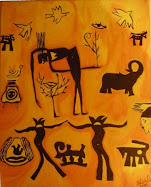
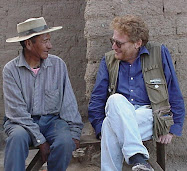
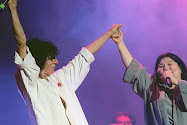


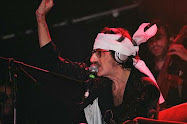




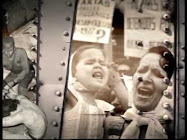




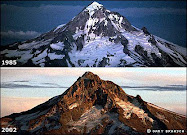

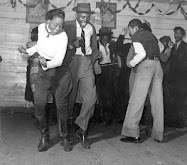



No hay comentarios:
Publicar un comentario